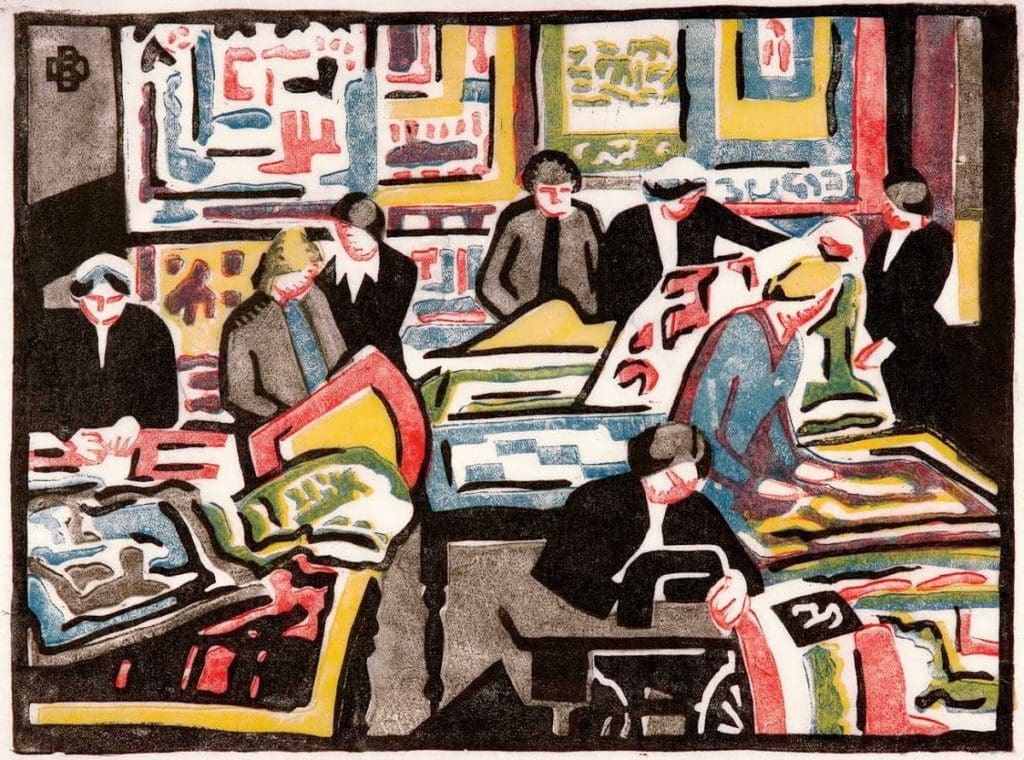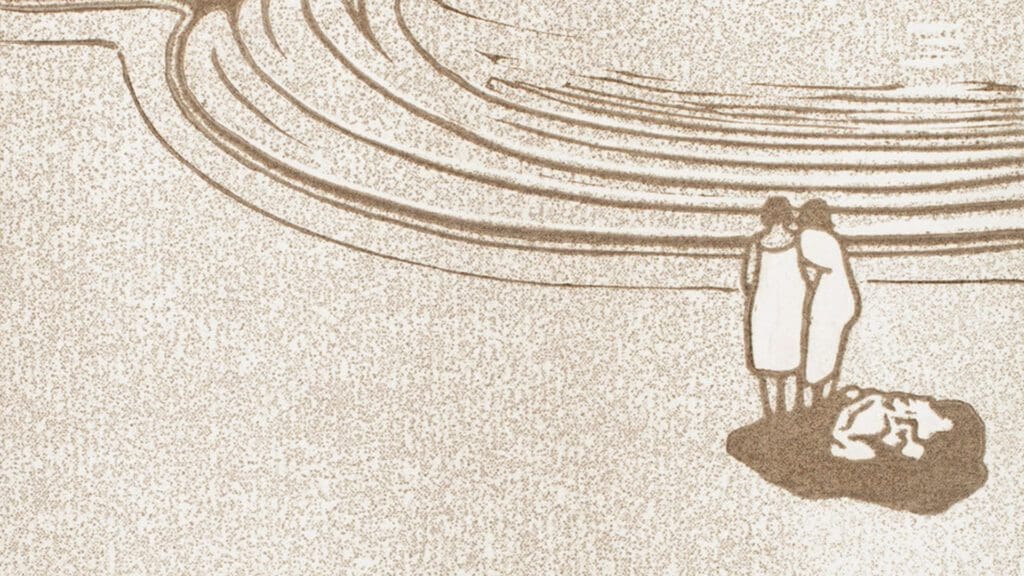I
—Bertrand Russell
If the locomotive of the Lord runs us down, we should give thanks that the end had magnitude.
—Jack Gilbert
If it is true that decline is part of the tapestry of tragedy that underlies existence, then we must acknowledge that humans are unwitting accomplices in hastening its progress. Is there any possibility of being less complicit? Might we find ways to become more resilient in the face of decline’s inevitability?
As the Buddhist axiom goes, death is the best teacher. And while there are many theatres of decline to study—human and non-human, organic and inorganic, micro and cosmic—I’d like for us to look at the largest theatre for humans: civilizations. For these amplify the effect of human virtues and vices.
Studying Civilizational Decline
Many have studied civilizations, but William Ophuls, a historian and political scientist, stands out for his unique approach. In Immoderate Greatness: Why Civilizations Fail, Ophuls integrates ecology, politics, complexity theory, and moral decay to assert that civilizations, driven by human ambition, always decline as a result of overreach compounded by human cognitive and moral limitations. In describing the typical life cycle, Ophuls cites a study of eleven empires—from Assyria, ending around 612 BC, to Britain, waning around 1950—that notes a pattern of six successive ages:
Conquest: militarized overtaking of lands
Commerce: further expansion through trade
Affluence: stable dominions enabling wealth but also seeding complacency
Intellect: flourishing of knowledge but discussion dominates action
Decadence: cynicism, pessimism, and frivolity
Ambition, courage, and industriousness propel civilizations through the early stages, but according to Ophuls, six inevitable factors conspire to cause collapse. The first is “Ecological Exhaustion,” where a civilization voraciously outstrips its natural resources. The next three are related to the consequences of runaway growth. In “Exponential Growth,” like the phenomenon of compound interest, a civilization’s growth upon growth creates an out-of-control pace that places the civilization at the mercy of the next two factors: “Expedited Entropy,” defined as increasing randomness and disorder, and “Excessive Complexity,” which combine to make civilizations unmanageable on a human scale.
Ophuls’s final two factors are human-centred. A civilization’s success and power feed into humanity’s intrinsic pride, greed, and short-sightedness, leading to fatal “Moral Decay.” Finally, it all comes toppling down due to “Practical Failures,” with all human decisions becoming increasingly suboptimal due to unmanageable complexity and social disintegration.

At least three aspects of Ophuls’s analysis are worth expanding on: A civilization’s march through each stage is unavoidable; civilizations are hard-wired for eventual collapse due to complexity, growth, and human limitations; and finally, humans’ moral weaknesses have remained unchanged despite technical and political progress.
Unavoidable stages. The mindset and goals of each empire’s age (era) spawn from the conditions set in the preceding age. For instance, an age of commerce would not be possible without the geographic breadth and institutional stability enabled by an age of conquest. Writes Ophuls:
Hard-wired for collapse. Like the Tower of Babel, civilizations climb ever upward, fuelled by ambition and restlessness. But they are managed by a myopic species bent on trading the present for the future, avaricious and prone to insult. Echoing Edward Gibbon on Rome, Ophuls writes,
Persistence of moral flaws. From caves to the moon, human progress in technology and in other areas of knowledge has been so evident that we can be forgiven for assuming we have become a kinder, rational species. And yet in just the last two centuries, an estimated 180 million people have died due to war. According to Machiavelli, “This arises from the fact that they are produced by men who ever have been, and ever will be, animated by the same passions, and thus they necessarily have the same results.” British philosopher John Gray says, “If history teaches us anything, it’s that hatred and cruelty are permanent human flaws, which find expression whatever beliefs people may profess.”
In the analysis of eleven empires that Ophuls cites, the average lifespan was consistently around 250 years—about ten generations—despite the conquest by the Assyrians on foot, with bows and arrows, to the British, two thousand years later, with artillery and ships. It appears that human nature and our motivations, virtues, and foibles have a way of holding constant, despite radical shifts across millennia.
How, Then, to Respond?
—Edith Hamilton
How do we respond to the unremitting gloom of decline? If there are three reactions we see repeatedly in history—cowering, ignoring, or confronting—Robert D. Kaplan, a veteran international correspondent, chooses the last option in his book The Tragic Mind: Fear, Fate and the Burden of Power. For Kaplan, “thinking tragically prevents tragedy.” Only with an unflinching acknowledgement of the cruel randomness of fate and a clear-eyed expectation that, as Solzhenitsyn said, “even in the best of all hearts, there remains . . . an uprooted small corner of evil,” can we have the humility and prudence to do less harm than we otherwise might.
What if our youthful formation was more intentionally constructed for denouement? Would our society be healthier if it was structured around the eventuality that there will be a last day, a last hour, and a last second?
When thinking about decline, we should orient our lives around its inevitability. We tend to see life as an arc, with most of our conscious energy and societal imagination focused on growth and optimization peaking somewhere between birth and death. But what if our youthful formation was more intentionally constructed for denouement? If the fibres of education were not only to pull us up to the highest peaks but instead to anticipate the eventual fraying such that the few remaining fibres hold us up at the end with dignity and agency? Would our society be healthier if it were structured around the eventuality that there will be a last day, a last hour, and a last second? Or not?
In addition to orienting one’s life toward inevitable decline, another edifying thought exercise is to imagine our comportment at the very end. Consider Larry Hayes, Texas inmate number 999358, who, before his execution for murder on September 10, 2003, said, “Please forgive me. . . . I would like to thank one of the arresting officers that I would have killed if I could have. He gave me CPR, saved my life, and gave me a chance to get my life right. . . . I love you all.”
Continuing with another experiment of thinking in extremis, consider that in most disaster movies, the archetypal characters fall into categories: the alpha hero, the trembling fearful, the inert fatalist, the scheming opportunist, the calming shepherd. If life is nothing more than a drawn-out disaster movie, what role would you wish to inhabit?
It would seem that it is useful to accompany a world-weary sagacity with equanimity. It is perhaps no coincidence that Ophuls also wrote a guide to Buddhist meditation. In Buddha Takes No Prisoners: A Meditator’s Survival Guide, Ophuls states that meditation opens us up to a “radical openness to the catastrophe of life,” an openness that yields equanimity. “It is the power of equanimity (rather than mindfulness per se) that you will need on your deathbed—and also after death, when all the old familiar landmarks are swept away.”
To What End?
After embracing the total tragedy of decline, though, the natural temptation is to quit. As Camus said, “There is only one really serious philosophical problem, and that is suicide.” But if quitting is off the table, at least for today, to what end do we gird ourselves for the road ahead and down?
Perhaps surprising, it is helpful to note that some of the answers come from the very pessimists I have reviewed. They point to a poignant heroism in struggle, a quest for beauty, and love when all else is lost.
Early in The Tragic Mind, Kaplan says, “My aim here is to inspire, not to depress. . . . Tragedy also insists that there is nothing more beautiful in this world than the individual’s struggle against long odds, even as death awaits him, with little or no chance of being remembered. This marks the true grandeur of the human spirit.”
Ophuls, in his Buddhist mode, exhorts us to stop grasping and clinging so that “we gain access to a realm of beauty, sweetness, and perfection that peacefully coexists with all the ugliness, bitterness, and imperfection of the ‘real’ world.”
In the end, love seems to redeem even the most jaded.
Kaplan:
Ophuls:
Duty and in Spite of Everything, Yes
I have discussed how our unbridled ambitions, vices, and myopia accelerate and worsen our lives and civilizations’ decline. And that despite progress in all that is hand-hewn—technology, letters, arts, politics, philosophy—our morality remains perennially fragile. In politics, where progress has been marked by greater representation of the masses, we should be called on for greater vigilance against our worst selves. Theodore Roosevelt echoed this warning in a 1910 speech to the French at the Sorbonne:
While we rise to our moral duty as citizens, do we do it grimly, on a “foundation of unyielding despair,” as in this essay’s first epigraph? No, I think not. While our decline is certain, our existence is not. A physician, Ali Binazir, estimated the odds of the existence of a single life today by calculating the probabilities through an unbroken chain of reproductive events that goes back billions of years to single-cell organisms. The resulting improbability is roughly equivalent to the outcome of two million people rolling a trillion-sided dice and all of them coming up with the same number. Basically, the probability of our existence is zero. And so, while the parentheses between eternities that are our lives could be filled with darkness in the face of decline, perhaps the almost impossibility of it all should instead engender an awe that crowds out the gloom and preciousness that spawns duty from gratitude.






